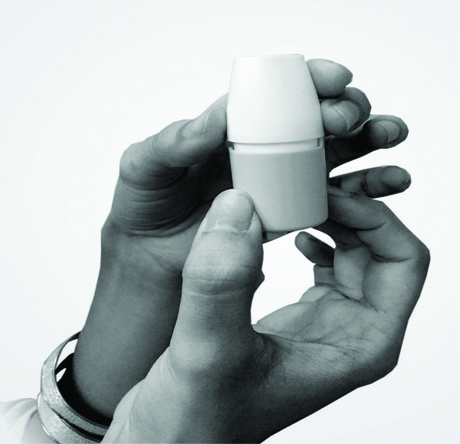Inhaled drug could dramatically reduce maternal deaths

Positive results have been announced from a first-in-human study of a new, inhaled form of a medicine that could significantly reduce maternal deaths around the world. The results, from the Monash University Institute of Pharmaceutical Sciences (MIPS), mean the possibility of a streamlined pathway to registration and earlier access to the drug for women.
Every year, over 300,000 women in low and low-middle income countries die during pregnancy and childbirth. Postpartum haemorrhage (PPH) is the single largest cause of these deaths.
Oxytocin can help prevent PPH; however, as an injection, oxytocin requires refrigeration and a skilled medical professional to administer it safely. In low and low-middle income countries, one or both of these requirements may not be available.
To address this unmet need, researchers at MIPS, in collaboration with GlaxoSmithKline in London, which sponsored the study, have been developing an inhalable, dry-powder form of oxytocin.
At the Royal College of Obstetricians and Gynaecologists World Congress in Cape Town, South Africa, the results of the first in-human trial of the new formulation were announced.
The study demonstrated, in a small cohort of non-pregnant female volunteers, that the effects inhaled oxytocin has on the body are not meaningfully different from its injected counterpart. This gives confidence that the inhaled form of oxytocin will deliver similar effects in prevention of PPH when given to mothers immediately after giving birth.
Associate Professor Michelle McIntosh, project leader at MIPS, said that this first in-human data offers hope to the many women in resource-constrained settings who do not currently have access to this essential medicine.
“These results show that oxytocin can be delivered similarly via inhalation or injection and therefore we are less likely to be required to conduct the extensive and costly trials needed for an entirely new drug. Instead, we should be able to move forward with trials on a much smaller scale, featuring patients numbering in the hundreds rather than tens of thousands, potentially making the medicine available much sooner,” Associate Professor McIntosh said.
This positive data supports the initiation of clinical studies evaluating inhaled oxytocin when given to women immediately after birth, the time at which oxytocin is routinely administered for prevention of PPH.
Is home washing contributing to antibiotic-resistant infection spread?
A UK study suggests home washing of healthcare worker uniforms may be unknowingly contributing to...
Bowel cancer's demographic shift demands clinical attention
Bowel cancer has been quietly redrawing its demographic boundaries; Bowel Cancer Australia's...
Chronic pain, care and communication: a lived experience perspective
This National Pain Week, Kathie Elliott-Scott, who lives with Ehlers-Danlos syndrome and...










